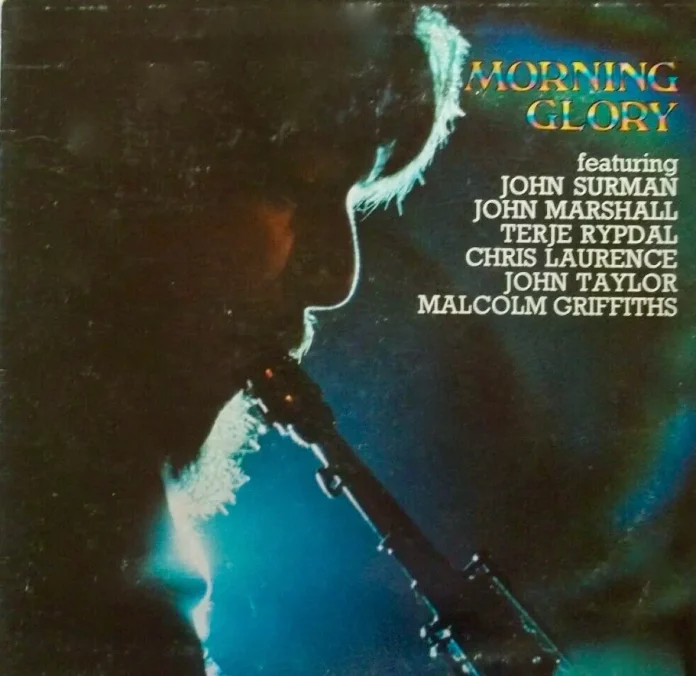After the stern austerity of ‘The Trio’ and the solitariness of ‘Westering Home’, my reactions to Surman’s comeback in the company of a thick-set six-piece band are still mixed, possibly because pre-conceptions about where his next direction lay even now often obscure the music. Admittedly, this is a bad state of affairs, but it’s that sort of album, and Surman’s move into an instrumentation previously uncovered by him, while not entirely unforeseen, does pose particular problems, essentially of structure and improvisation.
Immediately striking is the highly conservative nature of all the compositions’ construction. All begin with free passages, usually thoughtful and restrained, build up gradually to a boisterous climax, which in turn forces a predictable introduction of an in-tempo section based on a simple chord sequence and a suitably irregular rhythm. Eventually, this transition from ‘free’ into ‘time’ becomes too contrived and calculated, and the resulting sense of over-familiarity stems from the similar use of this kind of cliché by groups like Nucleus.
Norwegian Steel-Septimus shows this structural line of development more than any other track: Laurence and Griffiths grope forward together unsteadily in some unthinkable tempo, thereby turning the composition against itself and negating the previous construction. Iron Man suffers much the same treatment in Latin-American style.
Morning Glory’s attitude to improvisation is largely collective, and while this succeeds in Cloudless Sky, a haunting and atmospheric piece of self-perpetuation, real strength in Hinc Illae Lacrimae is blurred by self-conscious hesitation. This collectiveness hampers much of the individual soloing, but ironically, Surman and Rypdal, initially the toughest to follow, offer the most definite rewards on closer listening. Rypdal’s confused bustling bides its time until, like in Iron Man, he explodes into a fire-ball of energy. Surman for his part exudes a new sense of relaxation which is not obvious on first listening; his soprano often floats gracefully, while on occasions his clarinet lurks in almost meditative ease.
‘Morning Glory’ doesn’t emerge as the success one could have expected of it. But despite its general disappointment, its ability to bear repeated playing usually sheds light on previously underestimated individual soloing.
Discography
Cloudless Sky; Iron Man (20½ min) – Norwegian Steel-Septimus; Hinc Illae Lacrimae-For Us All (22 min)
John Surman (sop/bs-clt); John Marshall (dm); Terje Rypdal (gtr); Chris Laurence (bs); John Taylor (pno/el-pno); Malcolm Griffiths (tbn). Canterbury 12/3/73.
(Island ILPS 9237 £2.19)
















